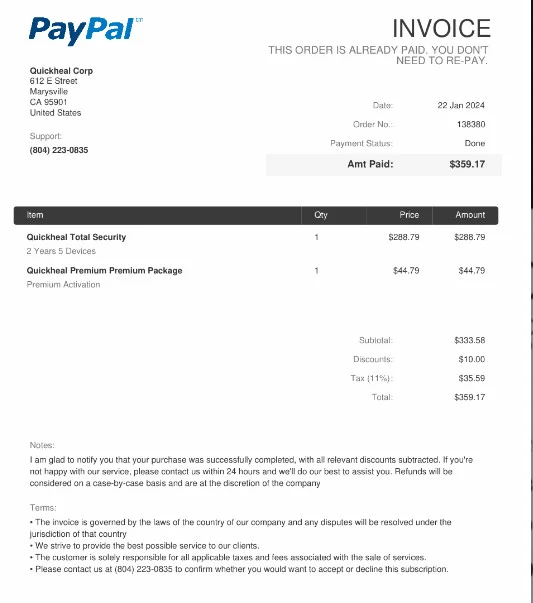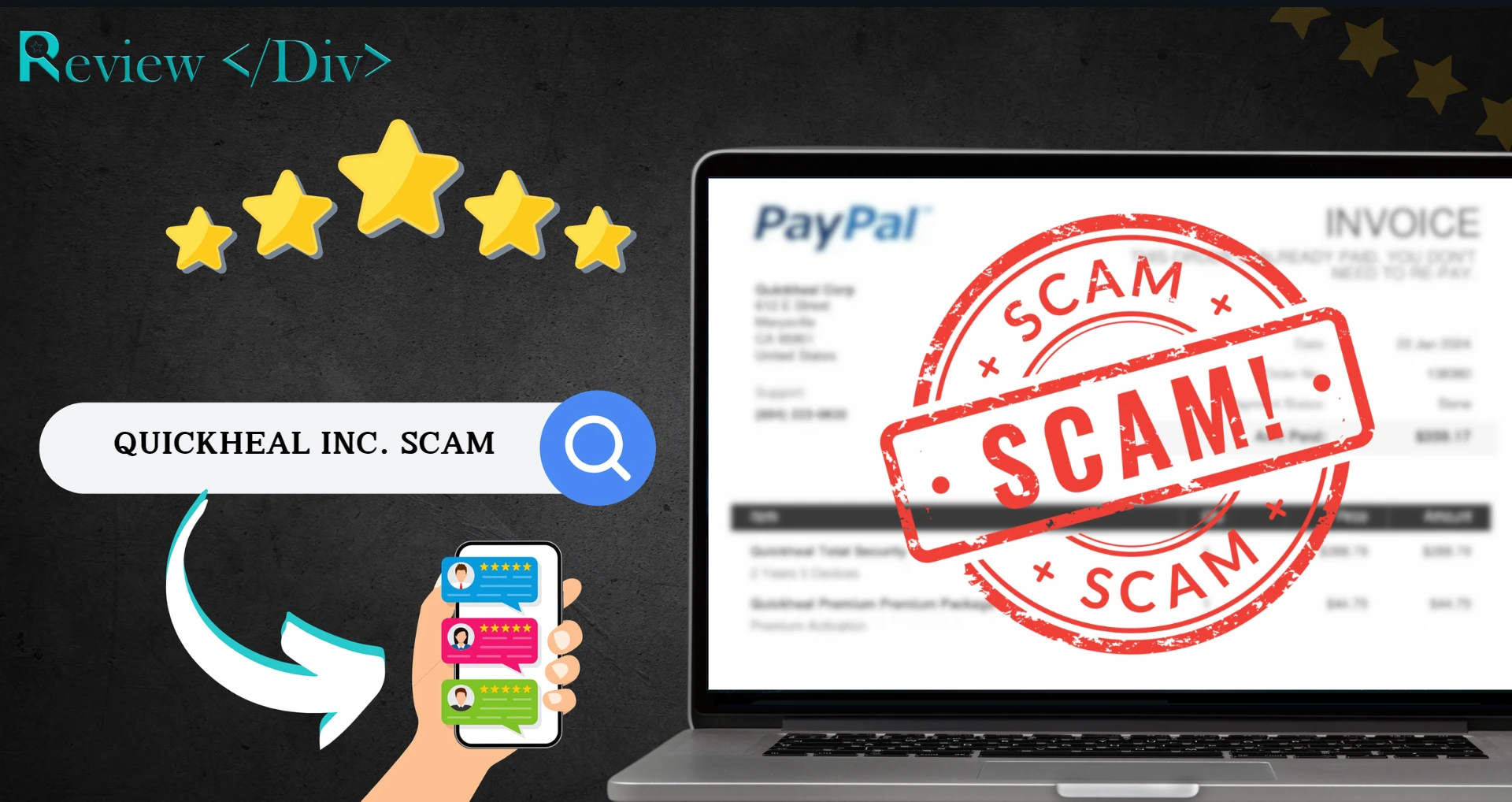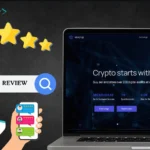Cyber scams are a constant problem, and the Quickheal Inc. scam is one of them. This scam misuses the name of Quick Heal Technologies, a popular cybersecurity company, to deceive people into sharing personal information or money.
In this article, we’ll explain what the Quickheal Inc. scam is, how it operates, and what steps to take if you become a victim.
Quickheal Inc. Scam Overview
The Quickheal Inc. scam tricks people by pretending to be Quick Heal Technologies, a well-known cybersecurity company. Scammers send emails or messages that look like they’re from Quick Heal.
These messages contain fake invoices, renewal notices, or other documents about antivirus services. The scammers aim to create panic, so people take action quickly. They send these emails to people who have never bought any Quick Heal products.
The messages say things like, “Your subscription has expired” or “Take immediate action to avoid charges.” These emails often come with attachments that look like real invoices.
For example, one person shared that they got a fake invoice from “Gay LL Assoc.” asking for payment for Quick Heal Antivirus, even though they had no connection with the company. This tactic is common, as scammers use it to confuse and scare people into responding.
How Does Quickheal Inc. Scam Work?
The Quickheal Inc. scam uses fear and impersonation to trick people. Scammers send fake emails that seem to be from Quick Heal Technologies with attachments or links that look like invoices or service agreements.
These emails try to create a sense of urgency, which warns you about supposed charges or expired services. They push you to act quickly by saying things like “Your antivirus subscription has expired” or “You owe $150 for Quick Heal services,” causing panic.

The emails also provide fake contact information, such as a phone number or link, which makes you believe you are reaching out to Quick Heal, but you’re contacting scammers. Once you engage, the scammers use various tactics to steal your personal or financial information.
If they think you’re young and tech-savvy, they ask for your credit card details for a fake refund. If they believe you’re older, they ask for remote access to your computer, pretending to help with the issue.
Lastly, their goal is to steal sensitive information or install malware. Sometimes, they offer fake refunds, claim an overpayment, and ask for your bank details. Once they get this information, they can steal money directly from your account.
What To Do If You Fall For Quickheal Inc. Scam?
If you think you’ve been targeted or scammed by Quickheal Inc, follow these steps to protect yourself and reduce the impact.
1. Stop All Contact
Don’t reply to suspicious emails or call the numbers provided. Legitimate companies like Quick Heal won’t ask for personal details or payments through random emails. Delete the email right away and avoid clicking on links or downloading attachments.
2. Check Your Accounts
Log in directly to your bank account or contact customer service to review any charges. If you notice any unauthorized transactions, report them to your bank or credit card company and ask for a chargeback.
3. Report the Scam
Report the scam to local authorities or consumer protection agencies. Many countries have online platforms to help you report cybercrime.
4. Change Your Passwords
If you shared personal information or allowed access to your computer, change your passwords immediately. Update your passwords for email, bank accounts, and other important services. Use strong passwords and enable two-factor authentication (2FA) for extra security.
5. Install Security Software
Run antivirus or anti-malware software to scan your device for any threats. Programs like Quick Heal Total Security or similar options can help detect and remove malware.







